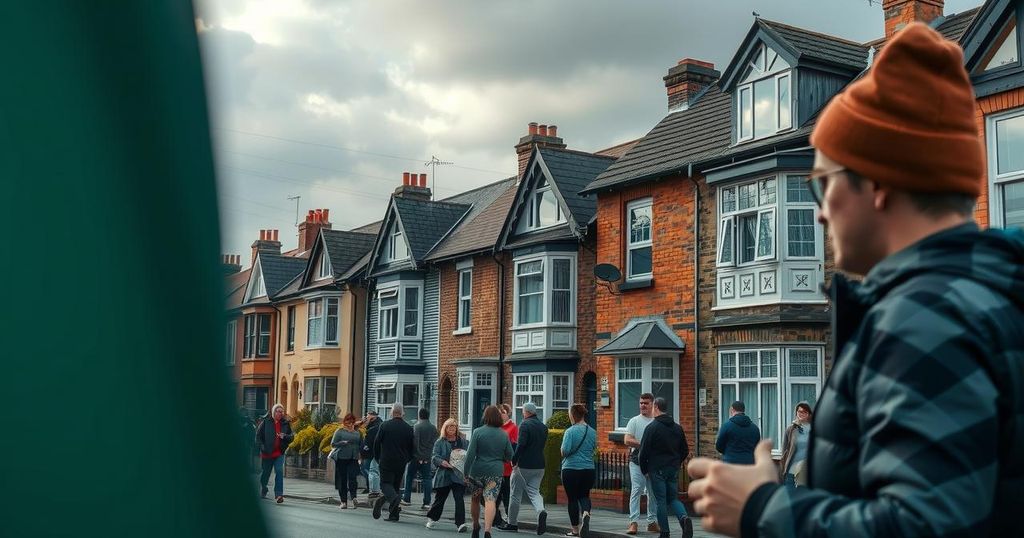World news
” HUTCH, BALLYFERMOT, CLONBURRIS, DUBLIN, DUBLIN CITY, DUBLIN CITY CENTRE, ELECTION, EUROPE, FIA, FIANNA FAIL, GERRY “ THE, GERRY “ THE MONK ” HUTCH, GOVERNMENT, IRELAND, LIBERTY RECYCLING, LIFESTYLE, LOCAL NEWS, MARY LOU MCDONALD, MIC, MICHEAL MARTIN, NEWS, OF IRELAND, PARLIAMENTARY SEATS, PETER MORRISON, SETON ’ S, SINN FEIN, SOUTH DUBLIN, ST, ST SETON ’ S, ST SETON ’ S SECONDARY SCHOOL, TAN
Ethan Kumar
0 Comments
Ireland’s Election: Housing and Immigration Shape Political Dynamics
Ireland’s upcoming election on November 29, 2024, is marked by voter discontent regarding housing and immigration. Rising housing costs, with a deficit of 256,000 homes, and the significant influx of immigrants are central issues. Political dynamics show a shift away from traditional parties towards independents and Sinn Fein, indicating a potential transformation in Ireland’s political landscape amidst an atmosphere of urgency for change.
As Ireland approaches its election on November 29, 2024, the political landscape has become increasingly volatile due to heightened discontent surrounding housing and immigration issues. Campaign posters flood Dublin, embodying the urgency for change as candidates like Gerry “the Monk” Hutch seek to capitalize on public frustrations. Ireland has experienced a significant rise in housing costs, with a reported deficit of 256,000 homes, exacerbating the already steep rent prices that many working-class citizens cannot afford. Meanwhile, immigration has transformed the demographic landscape, as a record influx of 120,000 foreigners has fueled tensions among the populace, driven by an influx of asylum seekers and economic migrants.
Political parties, particularly the traditional powerhouses Fine Gael and Fianna Fail, face a challenging election amidst growing support for Sinn Fein and an array of independent candidates. The mainstream parties, while attempting to respond to the electorate’s demands, are also grappling with the unpredictable sentiments of voters towards their policies. Individuals are voicing dissatisfaction with institutional politics, as evidenced by statements from voters expressing preferences for independent candidates over established politicians.
In recent years, Ireland has witnessed a profound shift in its political dynamics, characterized by a growing disillusionment with the traditional parties—Fine Gael and Fianna Fail—who have dominated the Irish political landscape for a century. The upcoming election serves as a barometer of public sentiment focused heavily on pressing issues such as the acute housing crisis and an influx of immigration. Approximately 20% of Ireland’s population now consists of individuals born outside the country, leading to debates on economic sustainability and social cohesion. The political environment reflects a broader global trend, highlighting an electorate seeking accountability and effective governance, particularly in the face of rising costs of living and housing shortages.
The Irish election of November 29, 2024, is poised to be significantly influenced by concerns over housing and immigration. The rising cost of living and the pressure on housing supply are central themes that resonate with voters, creating a fertile ground for independent candidates and parties outside the mainstream political framework. As traditional parties face increasing scrutiny, the election results could signal a pivotal shift in Ireland’s political landscape. The focus now rests on whether established parties can adapt to these emerging challenges or if the electorate will seek alternative political solutions.
Original Source: apnews.com




Post Comment